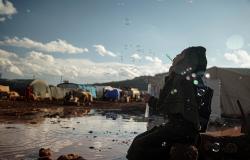
Global policy commitments to refugee protection are shaped by ever-growing pressures, from displacements triggered by conflicts, extremism and climate crisis to domestic fear-based politics. Before the COVID-19 pandemic, many governments were increasingly embracing exclusionary policies, defying the rights of asylum-seekers and refugees stalled in protracted camp settlements. While such policies contrast starkly with core principles espoused in the 1951 Refugee Convention and the Global Compact on Refugees, restrictions on refugees intensified further during the pandemic. This article discusses struggles shaped by these trajectories, drawing on policy analysis and experiences articulated in Tongogara Refugee Camp in Zimbabwe, where displaced people have recently endured impacts of climate disasters along with greater constraints on mobility and the hardening of international borders. We highlight divergences between colonial policy orientations and African philosophies such as Ubuntu that prioritize communal values and humanity towards others. Analysing concerns around encampment and barriers both to resettlement and local integration, we stress that the talents, contributions and fundamental rights of refugees should not be ignored by policy makers, who also need to be attentive to the social and ecological challenges experienced in refugee spaces. Exploring constraints of the various ‘durable solutions’, we draw attention to how uncertainties facing displaced people need to be critically approached as multi-scalar policy matters, beckoning attention to insufficiently met commitments linked with the Global Compact on Refugees, ways of mobilizing resistance to contemporary colonial bordering and support for refugee-led initiatives.
Policy Implications
- To advance the stated aims of the Global Compact on Refugees (GCR), specific global measures are needed to further counter xenophobic trends curtailing resettlement of refugees across colonial borders and across continents. Refugee policies globally must be reoriented to embrace decolonial values such as those embedded in African philosophies of Ubuntu.
- The impact of COVID-19 pandemic on the situation for refugees illustrates the need for stronger international agreements, including ensuring that asylum-seeking is seen as ‘essential’ travel and that borders remain open for refugee resettlement.
- Recognizing growing impacts of climate change and climate crises as exacerbating shocks, the ecological as well as social, economic, cultural, and political difficulties associated with encampment need to be robustly appreciated.
- More attention needs to be paid to the commitment of the GCR to meaningful refugee participation and support for refugee-led initiatives, with greater awareness drawn to the talents, skills and fundamental rights of refugees.
- The post-COVID world will require new multi-scalar policy commitments towards concurrently addressing challenges to voluntary repatriation, local integration and third country resettlement, informed by situated realities concerning protracted displacement and underlying injustices.
Photo by Khaled Akacha